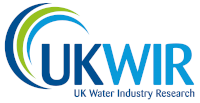Adapting to new challenges
16/02/2021
In setting the scene for the meeting, the chair for day one, UKWIR Board Member and Welsh Water’s Director of Environment Tony Harrington said that ‘UKWIR is in a place now with exciting opportunities ahead, where our research can really make an impact for our customers’.
The Water Innovation Strategy led and prepared by UKWIR’s members was published on 14 October 2020 followed by the go ahead to establish a Centre of Excellence (see UKWIR News 97) where UKWIR plays an important part in driving Innovation forward for the sector.
Meanwhile, UKWIR continues to drive stronger links with external bodies, both in the UK and internationally to facilitate greater value for its customers and society.
Dr. Alison Hoyle, Southern Water‘s Director of Risk Management and Compliance, chaired the second day of the meeting.
She stated that ‘innovation is changing quite significantly in the water sector with opportunities coming through the OFWAT Innovation Fund. The way of funding and prioritizing research and innovation has changed and we as an industry should be adaptive to these changes.’
UKWIR has now launched its 2021 programme of research after receiving votes from its members.
A total of 18 projects will begin in the first phase of this year, most of which are helping to answer UKWIR’s Big Questions – the water industry’s strategic research programme. See the UKWIR website for details.
Research progress
Wessex Water’s Dan Green, Programme Lead for the How do we remove more carbon that we emit? Big Question, gave an update on progress with research in this area.
Work is already underway on the development of a Land Carbon Sequestration Tool.
A second phase of work on evaluating greenhouse gas emissions from wastewater treatment processes has been advertised and a project to develop a robust approach to calculating whole life carbon is also planned.
Affinity Water’s Patrick Campbell gave an update on the valuable dialogue the Zero Interruption team have been having with the Zero Leakage team, discussing potential joint academic research (via WIRe, Pipebots, UKCRIC and Southampton University etc) and a summary of the Northumbrian Water Innovation Festival of the sprint concepts.
He also emphasised the importance of the National Failure Database to the industry and how this could benefit innovations, and the vital data it can provide for many leakage and infrastructure projects. The drinking water update is given in the article below.
Delivering engagement
UKWIR have engaged Sia Partners to help ‘co-create the research agenda and build a better working relationship between UKWIR, the Supply Chain & Academia’.
Sia’s Omar Clark (pictured) and Carly Perry updated participants on their work so far. They had made contact and gained key insights from academia and the supply chain, the latter primarily through Future Water and British Water.
Academia contacts were mainly via the GW4 Alliance comprising Bath, Bristol, Cardiff and Exeter Universities but also through Cranfield, Newcastle, Sheffield and Nottingham Universities. Sia Partners suggested that better engagement with academia could be beneficial.
Their early involvement in development of project suggestions and research routemaps could be advantageous. Delegates also gave their views on the possibility of establishing a Research Sandpit.
UKWIR will now reflect on the recommendations from this work and incorporate into their Business Plan for 2021/22.
